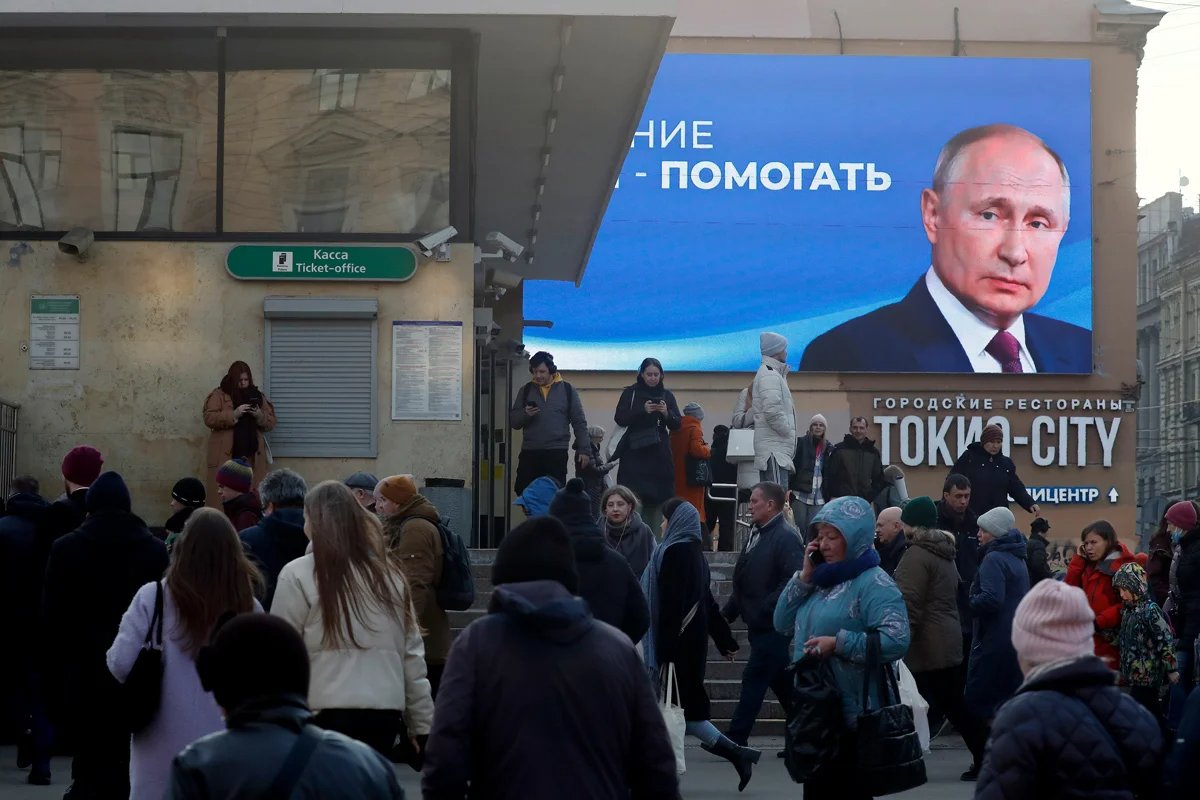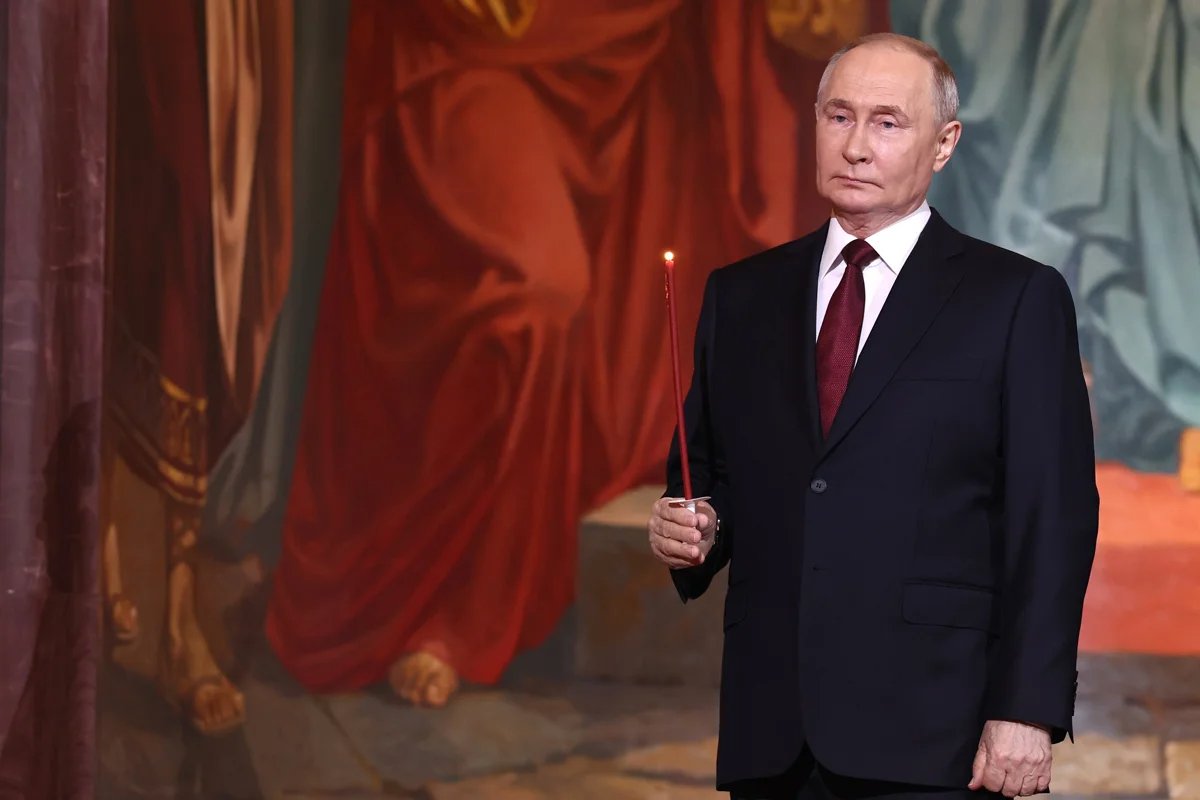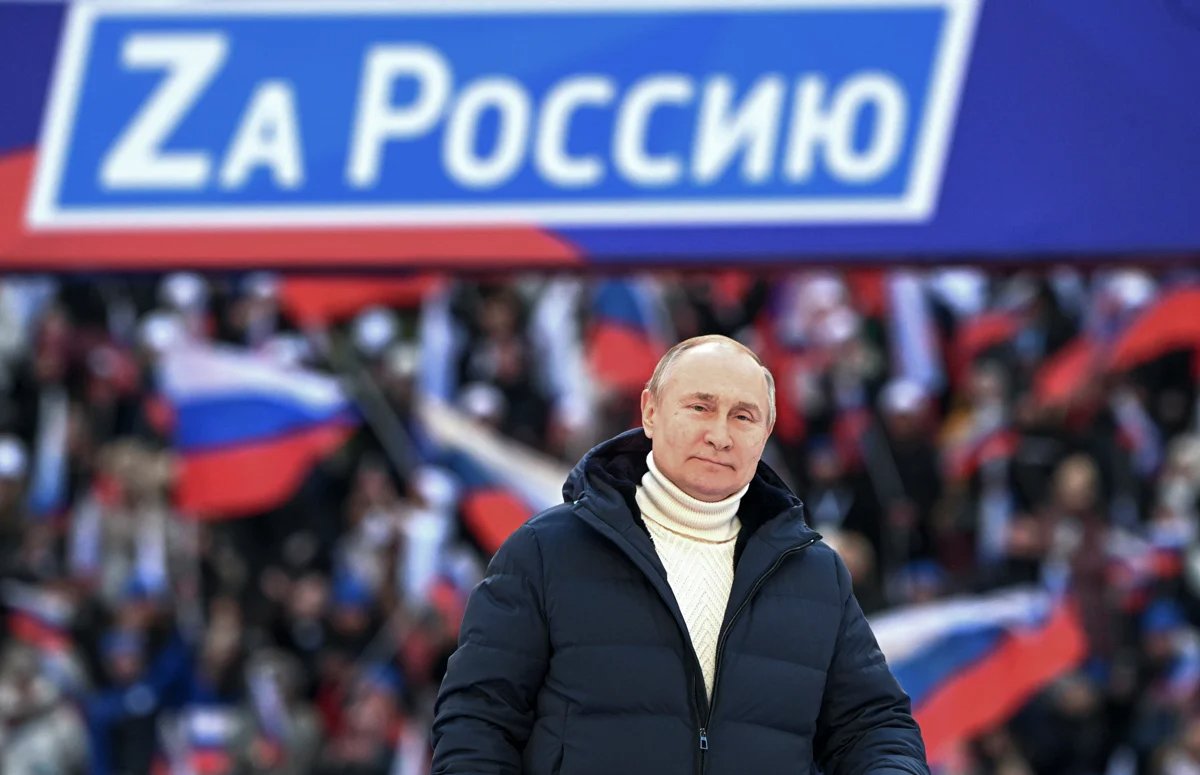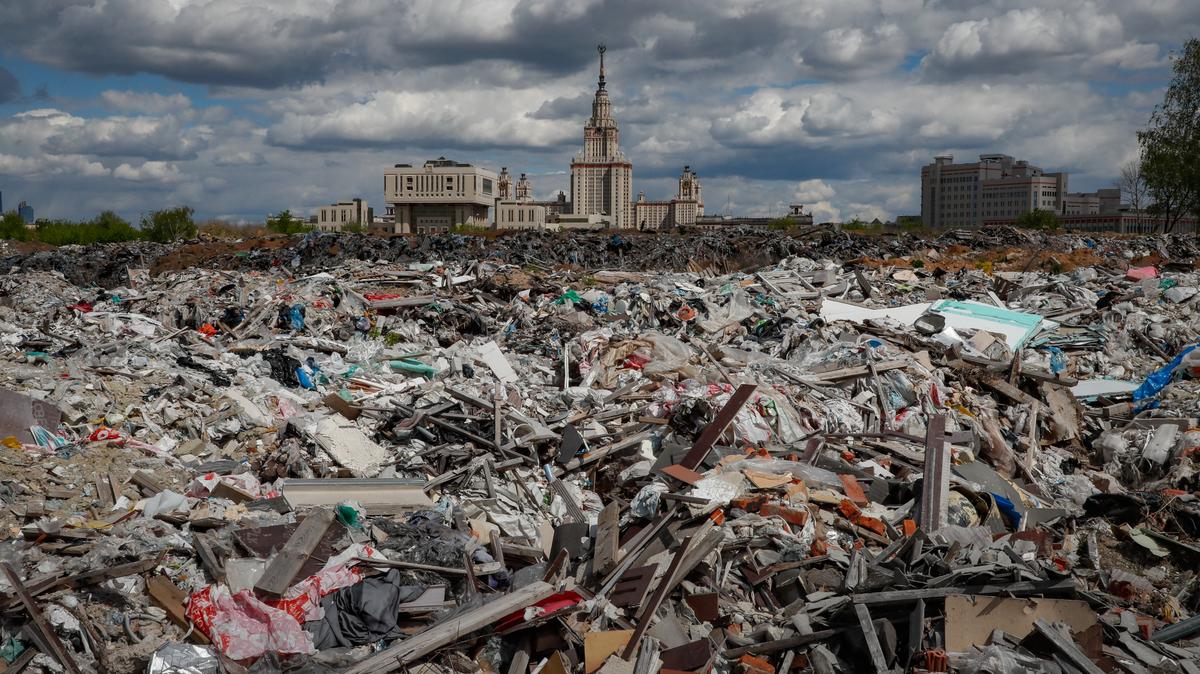Following his recent inauguration, Vladimir Putin signed a decree outlining a new set of national goals for Russia leading up to 2030. This tradition, which has become known as the May decrees, has seen Putin continue to add items to the country’s wish list after each of his interminable reign’s successive inaugurations, regardless of the fact that not a single one has yet been successfully realised.
Economic boom
The May decrees have been shaping Russia’s future for the past 12 years. The package of decrees that Putin proposed in 2012 outlined national goals for the coming eight years, echoing promises he made a few months beforehand in his address to the Federal Assembly, and all of which subsequently went unattained.
“Planning the country’s future over a long-term period is a normal practice”, philosopher and political scientist Denis Grekov told Novaya Europe. “But in the case of Putin’s Russia, this is an illusion.”
“The logic being used is roughly the same as that behind Stalin’s five-year plans, all of which needed to be accomplished in three years. Obviously, not a single one of them has ever been successfully implemented, though they have all been dutifully portrayed as triumphs,” Grekov added.

Billboard of Vladimir Putin in St. Petersburg, 14 March, 2024. Photo: Anatoly Maltsev / EPA-EFE
The first set of decrees in 2012 focused on long-term objectives for the Russian economy. At the time, Russia was hoping to attract investment and improve the country’s Ease of Doing Business rating with the World Bank, hoping to jump from 120th place in 2011 to 20th place after Putin’s re-election. In 2013, the deputy minister of economic development Andrey Klepach noted that in order for the decrees to succeed, the economy would require an annual growth rate of 7%.
At the time, Russia was hoping to attract investment and improve the country’s Ease of Doing Business rating with the World Bank, hoping to jump from 120th place in 2011 to 20th place after Putin’s re-election.
“Russia’s average economic growth rate in 2012 amounted to just 1%. Moreover, by the time the war in Ukraine began, Russians were earning on average less than they did in 2013. Can this really be considered successful?” economist Sergey Alexashenko said.
Raising salaries
Putin’s most notorious May decree was one that ordered a salary raise for state employees bringing them on par with the regional average wage by 2018, which he subsequently failed to enforce. Professionals such as doctors, teachers and researchers would have been earning twice as much. Seven years after the order was signed, Russian business outlet RBC reported that only 16 of Russia’s 89 regions had carried out the order.
This was the backdrop to late Russian opposition leader Alexey Navalny forming a trade union to lobby for compliance with the decree. Whenever the union found that a region was underpaying its state employees, it lodged a complaint with the governor. However, in 2015 the government changed the way monthly salaries were calculated, meaning that those employed by the state could be paid much less than promised while still technically complying with the decree. That same year, the Ministry of Labour reported a 99% rate of compliance with Putin’s decree.
“Rosstat came up with a special methodology that grossly underestimated the average salary in each region. As a result, the goals were attained on paper, despite the fact that in real life they weren’t,” Alexashenko said.
Increasing births
Rather than focusing on the country’s economy, the 2018 May decrees shifted focus to Russia’s declining birth rate. At that time, Russia was already under sanctions due to the annexation of Crimea and the flow of migrants into the country had been in decline for several years. The Russian Federation has only ever seen positive natural population growth in three years of its existence — from 2013 to 2015.
Data relating to Russia’s ongoing demographic crisis clearly demonstrates that the decree ordering the birth rate be raised was not accomplished either: the country’s birth rate in 2023 fell to a 17-year low of 1.41 children per family. In an interview with Novaya Europe, demographer Alexey Raksha blamed the shift of maternity benefits to first-born children for the continuing decline. While families receive state benefits worth 587,000 rubles (€5,974) for their first child, that rises to just 775,600 rubles (€7,890) in total for two children.
The Russian Federation has only ever seen positive natural population growth in three years of its existence — from 2013 to 2015.
In 2018, Putin replaced “life expectancy” as the primary metric with “health expectancy”, or the average number of years a person can expect to live without significant disease or injury. According to the World Health Organisation, Russia’s 2019 health expectancy was 64.2 years, but the Russian government’s own statistics indicate that the real health expectancy age was 60.3. Russia’s goal was to achieve a health expectancy of 67 years by 2024, but according to the latest data that figure only rose to 61.37 in 2023.

Vladimir Putin at an Orthodox Easter service in the Cathedral of Christ the Saviour in Moscow, 5 May 2024. Photo: Valery Sharifulin / Sputnik / Kremlin / EPA-EFE
Instilling spirituality
Putin’s approach to education also visibly shifted between terms. In 2012, he set an ambitious goal of having at least five Russian universities in the top 100 international higher education rankings by 2020. However, according to the world’s most prestigious university rating, only Moscow State University made it into the top 100, ranking 84th. The next highest ranking Russian university, St. Petersburg State University, was ranked 234th in the world.
The next round of decrees shifted focus to so-called “traditional values” and “patriotism” in Russia’s education system. In 2018, Putin ordered that Russians be educated “on the basis of spiritual and moral values of the peoples of the Russian Federation” as well as “historical and national-cultural traditions”. What this meant in practical terms and how exactly the authorities were expected to implement the policy was never clarified.
In 2018, Putin ordered the government to ensure “the global competitiveness of Russian education and Russia’s entry into the top 10 countries in the world in terms of education quality.” However, Russia no longer participates in PISA due to the war, and with no international ranking system, it’s impossible to judge if Putin’s goal was achieved. According to the most recently available data from 2018, Russia ranked 30th in the world.
In the most recent round of decrees, Putin continued to emphasise the creation of a “patriotic environment”, requiring the government to create conditions “for fostering harmoniously developed, patriotic and socially responsible individuals based on traditional Russian spiritual, moral, cultural and historical values” by 2030.

Putin delivers a speech at Moscow’s Luzhniki Stadium during a holiday concert to mark the anniversary of Russia’s annexation of Crimea, 18 March 2022. Photo: Ramil Sitdikov / Sputnik / EPA-EFE
‘Clean Country’
In his 2024 May decrees Putin appeared to focus on environmental welfare, but experts who spoke to Novaya Europe about the latest objectives expressed doubt as to how serious these plans are.
Political scientist Denis Grekov said that in reality the only plan for Russia is the war. “There is only one possible plan: to focus all development on the war,” Grekov said, adding that the mention of ecological welfare in the current moment was “baffling”.
The environmental agenda first appeared in Putin’s decrees in 2018, when he established a new initiative called “Clean Country”. Among other things, he claimed the initiative would eliminate all unauthorised dumps within city limits by 2024.
But in January 2023, Natural Resources Minister Alexander Kozlov, estimated that only 58% of unauthorised dumps within the boundaries of Russian cities would be removed by the end of the year. In the 2024 decrees Putin outlined still more ambitious plans, promising that Russia would sort 100% of solid municipal waste by 2030 and halve its emissions of hazardous pollutants by 2036.
Other parts of the 2024 plan are similarly unrealistic. Putin pledged he would bring the poverty rate below 7% by 2030 and below 5% by 2036, to reduce the Ginny coefficient — a metric used to assess wealth inequality — to 0.37, and to bring the minimum wage to the level of 35,000 rubles (€358). Currently the Russian minimum wage is just over 19,000 rubles (€194) and the poverty rate is 9.3%, so economist Sergey Alexashenko predicts that reaching these new targets would once again be accomplished via the manipulation of statistics.
Putin also promised that by 2030 Russia would rank fourth in the world in GDP when compared using purchasing power parity (PPP), a metric that compares the price of specific goods across different countries. Today Russia ranks 5th in the world by this measurement, a statistic Putin’s supporters often use to underscore his economic achievements.
Economists, however, are sceptical; without PPP, Russia falls to eighth place in the GDP ranking. A more objective reflection of real people’s quality of life would be achieved by examining GDP per capita alongside PPP. If that system were used, Russia would rank 60th — falling between Maldives and Saint Kitts and Nevis.
When asked whether anything would change if Putin’s programmes fail, Grekov voiced his uncertainty. “I think Putin quite deliberately lowers the standard of living of the population to make it easier to control them,” he said. “That way they can’t think of anything except their own survival.”
Join us in rebuilding Novaya Gazeta Europe
The Russian government has banned independent media. We were forced to leave our country in order to keep doing our job, telling our readers about what is going on Russia, Ukraine and Europe.
We will continue fighting against warfare and dictatorship. We believe that freedom of speech is the most efficient antidote against tyranny. Support us financially to help us fight for peace and freedom.
By clicking the Support button, you agree to the processing of your personal data.
To cancel a regular donation, please write to [email protected]

